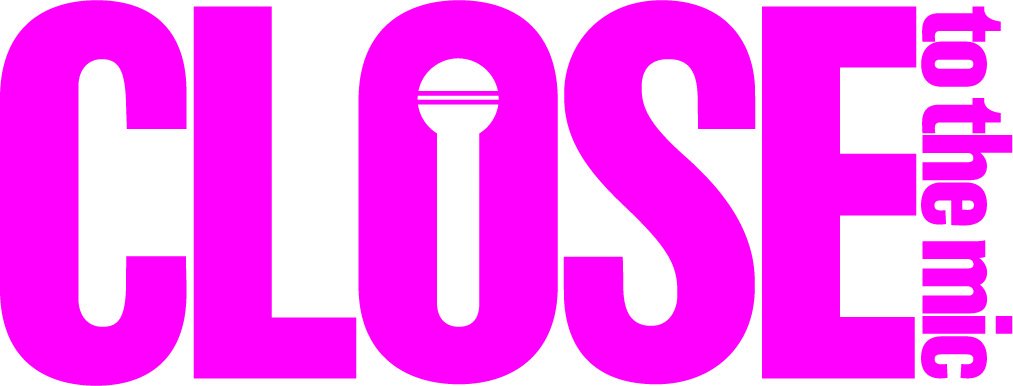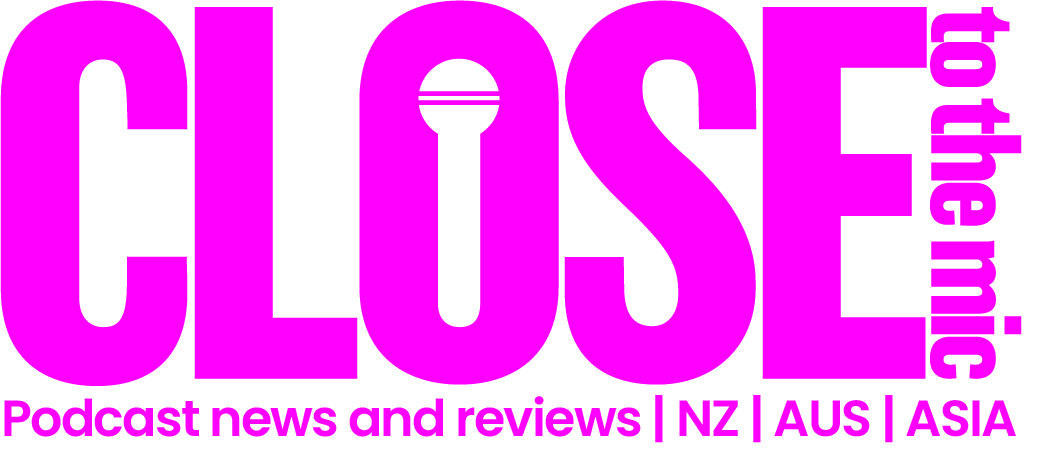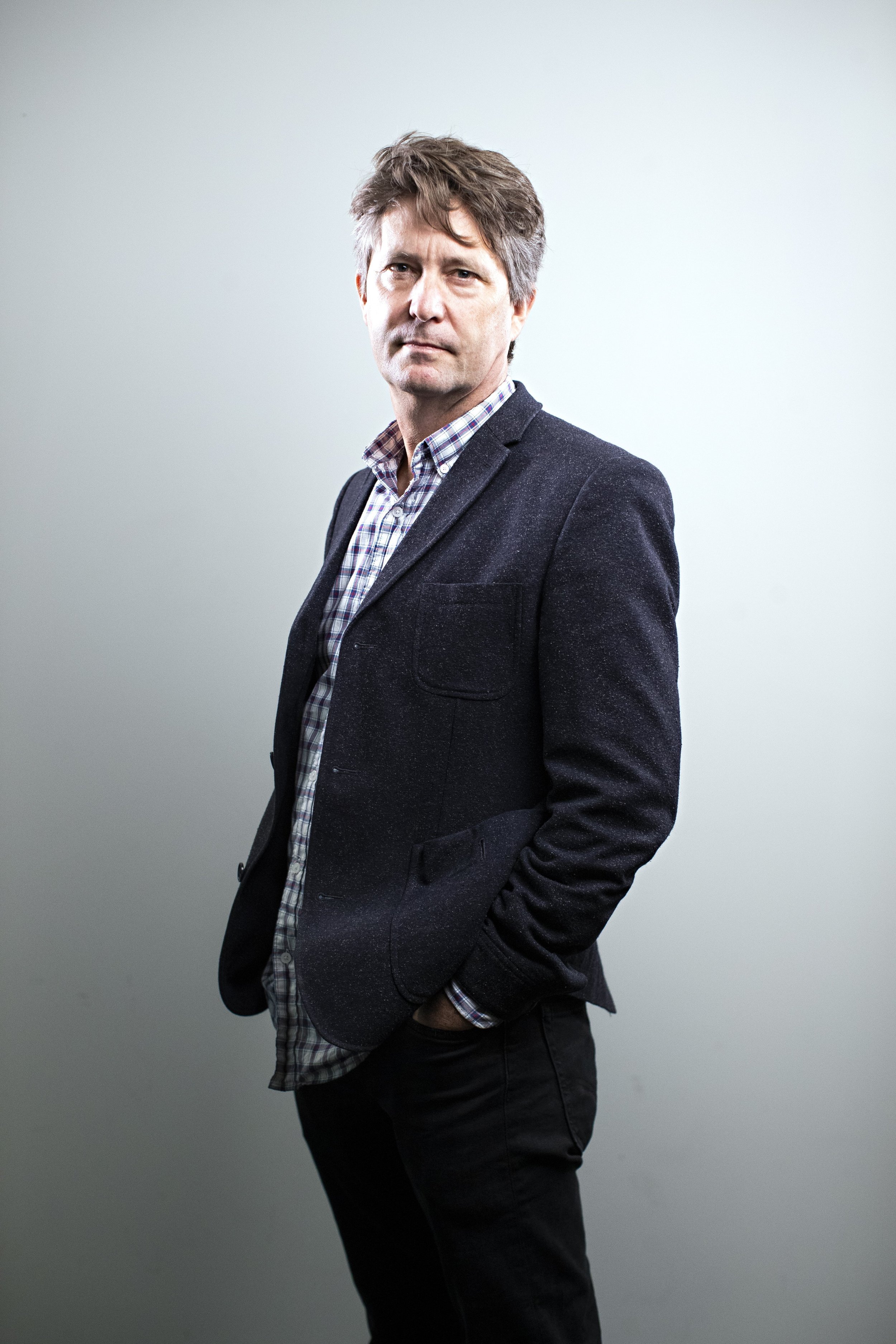Deep Inside the Commune
Drug use, psychological and sexual abuse, manipulation, and child neglect are all part of the dark past surrounding Centrepoint.
Reporters Eugene Bingham and Adam Dudding produced the series and got close to the stories through their investigation for Stuff podcast The Commune. The series has recently won two awards - Silver and Bronze at the prestigious New York Festivals Radio Awards and is also a finalist for the Voyager Media Awards, with winners to be announced 27 May.
The Commune podcast is presented by Adam Dudding. Image courtesy of Stuff
Located in Albany, Centrepoint ran between 1978 to 2000 and was founded by ‘spiritual leader’ Bert Potter who created this ‘therapeutic sanctuary’ away from the rat race. Controversially, its free love and open sexuality policy saw its demise.
At Close to the Mic we wanted to get an inside look at the making of this 12-part documentary podcast.
How intensive was the research process behind The Commune, and how long did it take to produce?
Eugene: The time from initial idea to completed podcast was about two-and-half years, but it was a very stop-start process, especially during Covid, so it was probably more like a year’s full-time work for the two of us. We talked to about 40 people along the way, and interviewed about 30 of them.
There was also a lot of archival research - we tracked down a trove of 30-hours or so of audio recordings of Centrepoint’s guru Bert Potter talking to the community, all of which needed to be digitised and transcribed. [It was] a pretty painful exercise, and not just because some of the old audio cassettes had gotten sticky, and kept jamming the cassette player!
Adam: We also combed through thousands of pages of text documents [including] court files, judicial findings, council hearing minutes and submissions, 20 years of Centrepoint’s own magazines, and some individuals’ personal archives. It was a ridiculously huge exercise, and once that was done we had to figure out how to order this tsunami of information and write it into a coherent narrative.
Stuff reporter and producer Eugene Bingham worked for two years on The Commune. Image courtesy of Stuff.
What was your stylistic approach to the series and did that change through the process?
Eugene: The plan was always to create a strong, character-driven narrative that would pull the listener through a very complex multi-decade saga. Because of the generosity and storytelling skills of some of our central interviewees, I think we achieved that.
But we also wanted to create a really rich sonic environment for that storytelling, which meant a lot of thought went into how we used music and sound effects. Sometimes that was great fun, like when Adam wrote a little tune to go over the nostalgic sounds of a game of Space Invaders, or when our sound mixer Andrew McDowall sang all the parts for a choral parody of The Twelve Days of Christmas.
Adam: When we first started digitising the old tapes of Bert Potter, we were struck by some of the accidental distortions that arose, for example, the tape spool got sticky and the audio ground to a juddering halt.
Eugene had the idea of exaggerating some of those distortions and using little clips of ‘distorted-Bert’ to indicate section breaks, almost like little clips of horror-movie incidental music. These clips, scattered through the entire podcast really helped build a distinctive sonic palette.
Presenter and Stuff reporter Adam Dudding. Image courtesy of Stuff.
What did you want to achieve in terms of the listener experience, given that the story has also been told as a TV documentary?
Adam: Over the years, Centrepoint has been the subject of many documentaries and books and feature stories and much of the history was known. Yet one of the beauties of long-form podcasts is that there’s time to go down a rabbit hole if you want to, and to really dig into the details.
So yes, the overarching story told in The Commune is very similar to the story that was told in the excellent TV documentary Heaven and Hell, and we even had some of the same interviewees.
But over our 12-episode, 10-hour running time, we were able to give listeners a really close look at things, like the totally bonkers Takapuna Council hearings where Centrepoint members pretended they were part of a religion in order to skirt planning laws, or rummage around the history of the Esalen Institute in California, where Potter picked up some of the techniques he would later use to great effect at Centrepoint.
We also had time to tell the Centrepoint story all the way to the end, including the extraordinarily difficult and complex process of finally shutting the whole place down, which in the history of cults is something that’s much harder to achieve than you might think. As a result, we think The Commune is probably the most comprehensive telling of the Centrepoint saga to-date.
It can be hard not to be affected when doing interviews on issues or topics that are deeply emotional for people, and where there is trauma attached. As producers, what was it like going through the process?
Eugene: Oh, absolutely it can be difficult and heart-wrenching and it impacts you personally. It certainly helped that we were working together on it and could talk to each other – we’d often check in on each other.
Adam: Between us we’ve had decades of dealing with stories that involve trauma and pain and we’ve developed ways to process things. For me, it’s sometimes a walk down to the beach.
Eugene: And [in my case] it’s a run through the forest; moments when you can just clear the head or figure out how to deal with the emotions you’re feeling.
How did you navigate the more delicate aspects that can be hard to broach?
Eugene: The thing about the [people from] Centrepoint is that many of them were really, really good at talking about absolutely everything. We were mindful of our duty of care and approaching topics with respect, but often once you asked the question, people were prepared to talk. We’ve never heard anyone being as frank about topics that would normally be a no-go zone in an interview.
What was one of the most challenging aspects of producing the series, and why?
Adam: In some ways, the most challenging part was what to tell and what to leave out – Centrepoint was this vast, complex entity and you had to be constantly making decisions about what was important to tell. Put it this way, there was a lot left on the cutting room floor.
In what ways did the production take it out of you, or affect you during and after it was completed?
Eugene: The Commune was a huge undertaking. For starters there was just the hours of work we needed to put into it. We were also conscious that we carried a huge responsibility to tell the story respectfully and with a duty of care for the people involved, and that was something that sat with us even long after it was released.
What was one of the moments that has remained with you from some of the interviews?
Adam: We were interviewing one of the women who had been a teenager at Centrepoint and she had told us, almost lightheartedly, about a particular incident that happened there involving Bert Potter. But as she told us more details, you could see her mood changing … she was coming to understand that [she had experienced] abuse. She had never really thought about it, so it was a profound and emotional moment.
What do you think The Commune says about a particular time in New Zealand’s historical, social and cultural landscape?
Eugene: Lots! Centrepoint came along at exactly the right time, in a way. It was a time of so much change and during a period when all the social and ethical norms were being questioned. People were prepared to challenge authority, and they were looking for new ways and new answers to the meaning of life.
Adam: Centrepoint filled a void for many people, unfortunately (and that’s a massive understatement). Its response to abuse and criminal behaviour was twisted with Bert Potter convincing people [that] wrong was right, while many others were mired in a time when you dealt with things by burying them.
Within society at large, the attitude to abuse was stuck in the past – much of what happened to children was being reported and spoken about publicly, but the outside world oftentimes turned away.
What are you most proud of in telling this story?
Eugene: We’re proud that The Commune will stand as a timeless piece of journalism and storytelling. In 12 episodes it gives a rich account of a community that had an astonishing impact, and left behind a legacy, which will last for generations.
Listen to the first two episodes of The Commune above or head to the full series to find out more.
The Commune Production Team
Presenter: Adam Dudding
Written, reported, produced and edited by: Adam Dudding and Eugene Bingham
Mixing: Andrew McDowall, Digicake
Music: Audionetwork
Script editing: Michael Wright
Illustrations: Phil Johnson
Layout and development: Sungmi Kim
Project editor: John Hartevelt
Librarian: Lesley Longstaff
Legals: Genevieve O’Halloran, Courtney Grenfell
Administrative Assistance: Sky Austin-Martin
Commissioning editors: Patrick Crewdson, Mark Stevens, Carol Hirschfeld




